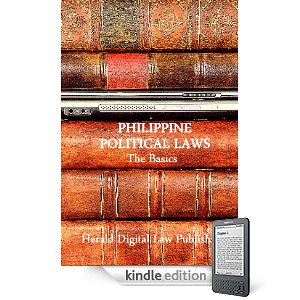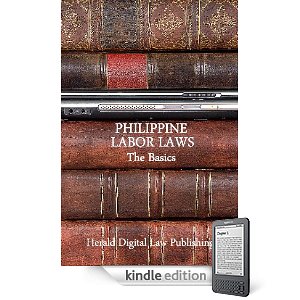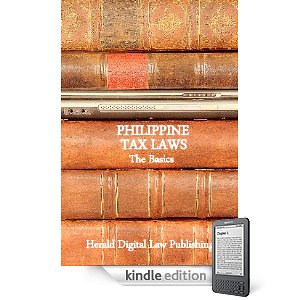From time to time, one can read headlines announcing that the Philippine Supreme Court has declared a law or regulation unconstitutional. For example, on December 7, 2010, the Supreme Court rendered a decision declaring President Benigno Aquino’s Executive Order No. 1 (which created the Truth Commission tasked to investigate the past administration) unconstitutional. (see Biraogo vs. The Philippine Truth Commission of 2010, G.R. No. 192935, December 7, 2010)
The declaration of a law or regulation as unconstitutional proceeds from the principle that under the Philippine legal system, the Constitution is the supreme (or fundamental law) of the land. Laws, rules and regulations that are not consistent with the Constitution can be declared by courts to be unconstitutional, void and of no force and effect.
 As the supreme law of the land, a Constitution is not promulgated by Congress in the same manner ordinary laws are promulgated. It is usually drafted by a group of people elected or appointed to form a constitutional convention or commission (although Congress can also act as a constitutional convention). The draft constitution will then be submitted to the people for ratification. In the case of the current Constitution, it was drafted by a Constitutional Commission created by President Corazon C. Aquino in 1986. The 1987 Constitution took effect immediately upon its ratification by a majority of the votes cast in a plebiscite held on February 2, 1987 (see Constitution, art. XVIII, sec. 27). The 1987 Constitution replaced the 1986 Provisional Constitution (or the “Freedom Constitution”), which President Aquino promulgated after the ouster of then President Ferdinand E. Marcos. The Freedom Constitution, which President Cory Aquino promulgated pursuant to her powers as head of a revolutionary government, is a major exception to the rule that a Constitution is ratified by the people. Both the 1935 Constitution and the 1973 Constitution were the subject of ratification. While there were questions on whether the 1973 Constitution, which was submitted for ratification during the martial law regime of President Marcos, was validly ratified, the Supreme Court ruled in the Javellana case that there was no further obstacle to the 1973 Constitution being considered in force and in effect.
As the supreme law of the land, a Constitution is not promulgated by Congress in the same manner ordinary laws are promulgated. It is usually drafted by a group of people elected or appointed to form a constitutional convention or commission (although Congress can also act as a constitutional convention). The draft constitution will then be submitted to the people for ratification. In the case of the current Constitution, it was drafted by a Constitutional Commission created by President Corazon C. Aquino in 1986. The 1987 Constitution took effect immediately upon its ratification by a majority of the votes cast in a plebiscite held on February 2, 1987 (see Constitution, art. XVIII, sec. 27). The 1987 Constitution replaced the 1986 Provisional Constitution (or the “Freedom Constitution”), which President Aquino promulgated after the ouster of then President Ferdinand E. Marcos. The Freedom Constitution, which President Cory Aquino promulgated pursuant to her powers as head of a revolutionary government, is a major exception to the rule that a Constitution is ratified by the people. Both the 1935 Constitution and the 1973 Constitution were the subject of ratification. While there were questions on whether the 1973 Constitution, which was submitted for ratification during the martial law regime of President Marcos, was validly ratified, the Supreme Court ruled in the Javellana case that there was no further obstacle to the 1973 Constitution being considered in force and in effect.
Why is the Constitution submitted to the people for ratification? Sovereignty resides in the people and all government authority emanates from them. The Constitution establishes the basic framework of government, the principles and policies of the government, and the fundamental rights of citizens.
With respect to the 1987 Constitution, it allocates governmental powers among the executive, legislative and judicial branches of government. The President exercises executive power, Congress (consisting of the Senate and the House of Representatives) exercises legislative power, and the Supreme Court and the lower courts created by law exercise judicial power.
The Constitution also enunciates state principles and policies. Among the principles and policies embodied in the Constitution are:
(1) Sovereignty of the people;
(2) Renunciation of war as an instrument of national policy;
(3) Supremacy of civilian authority over the military;
(4) Service and protection of the people as the prime duty of the Government;
(5) Separation of Church and State;
(6) Guarantee of human rights;
(7) Separation of power among the various branches of governments; and
(8) Autonomy for local government units.
One of the central components of the Constitution is the Bill of Rights, which declares and enumerates the basic rights and liberties of the people which the government (or any person) is forbidden to violate or encroach upon. Among the rights granted by the Constitution are:
(1) Due process of law and equal protection;
(2) Right against unreasonable search and seizure;
(3) Right of privacy;
(4) Freedom of speech, of expression, and of the press;
(5) Freedom of religion;
(6) Liberty of abode and travel;
(7) Right to information on matters of public concern;
(8) Right to form associations for purposes not contrary to law;
(9) Right to a just compensation when private property is taken for public use;
(10) Right against impairment of contract;
(11) Freedom of access to the courts;
(12) Rights pertaining to persons under investigation;
(13) Right against excessive bail;
(14) Rights of the accused in criminal cases; and
(15) Right to speedy disposition of cases.
In its decision declaring the executive order creating the Truth Commission as unconstitutional, the Supreme Court found that it violated the equal protection clause of the Bill of Rights as it singled out the past administration in the investigation that the Truth Commission will conduct. The Supreme Court’s ruling is now the subject of a motion for reconsideration. We should know soon whether the verdict of unconstitutionality will stand.





